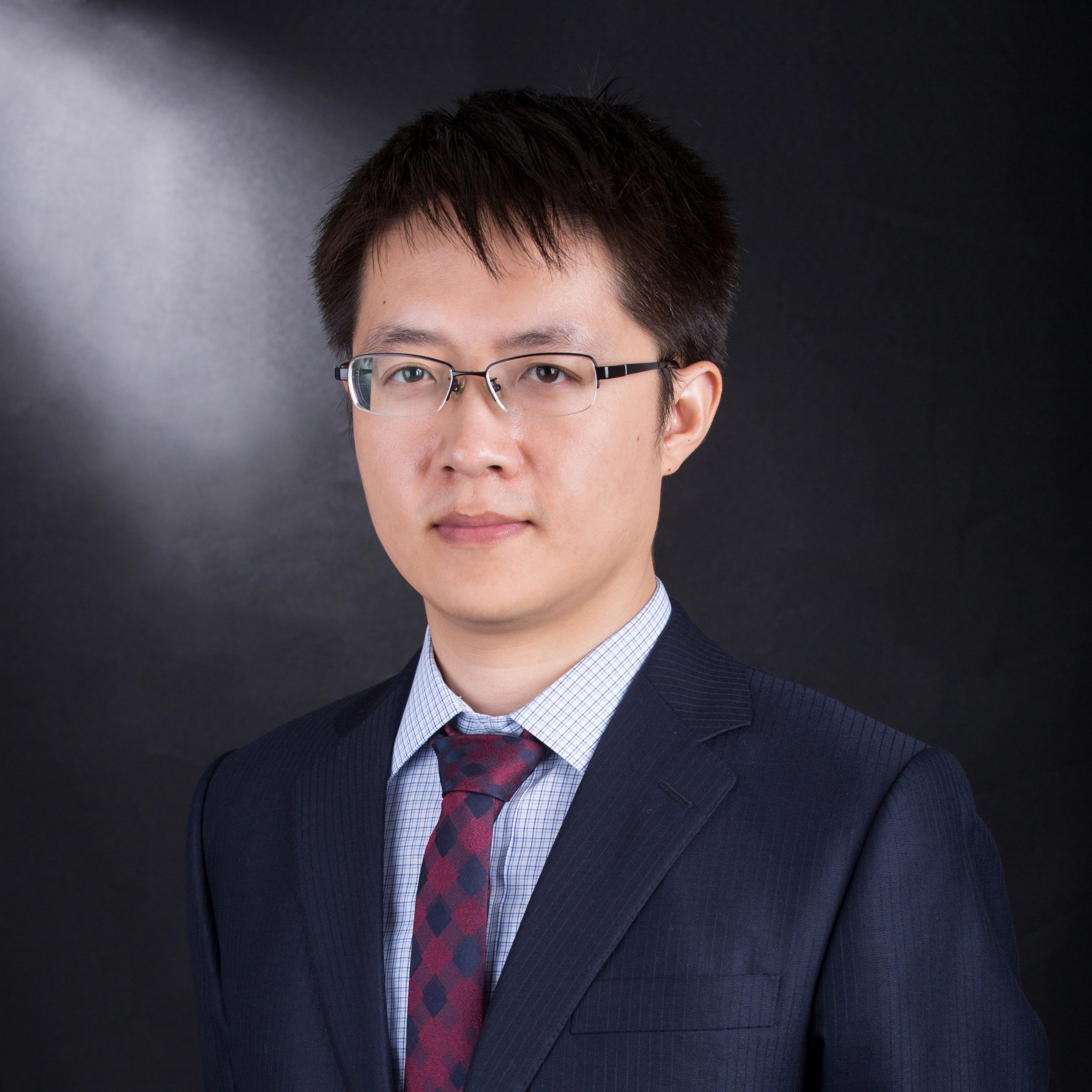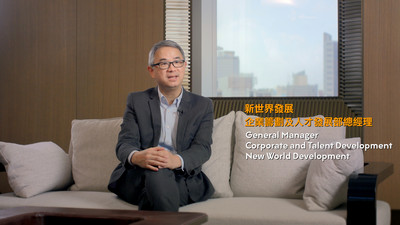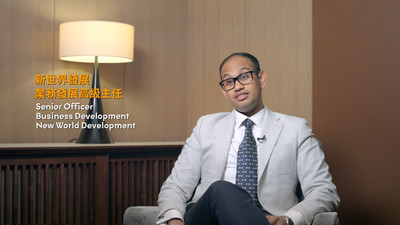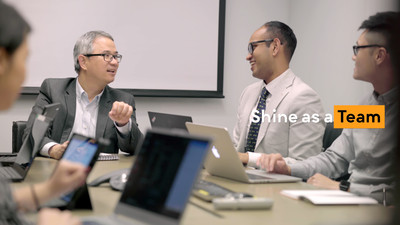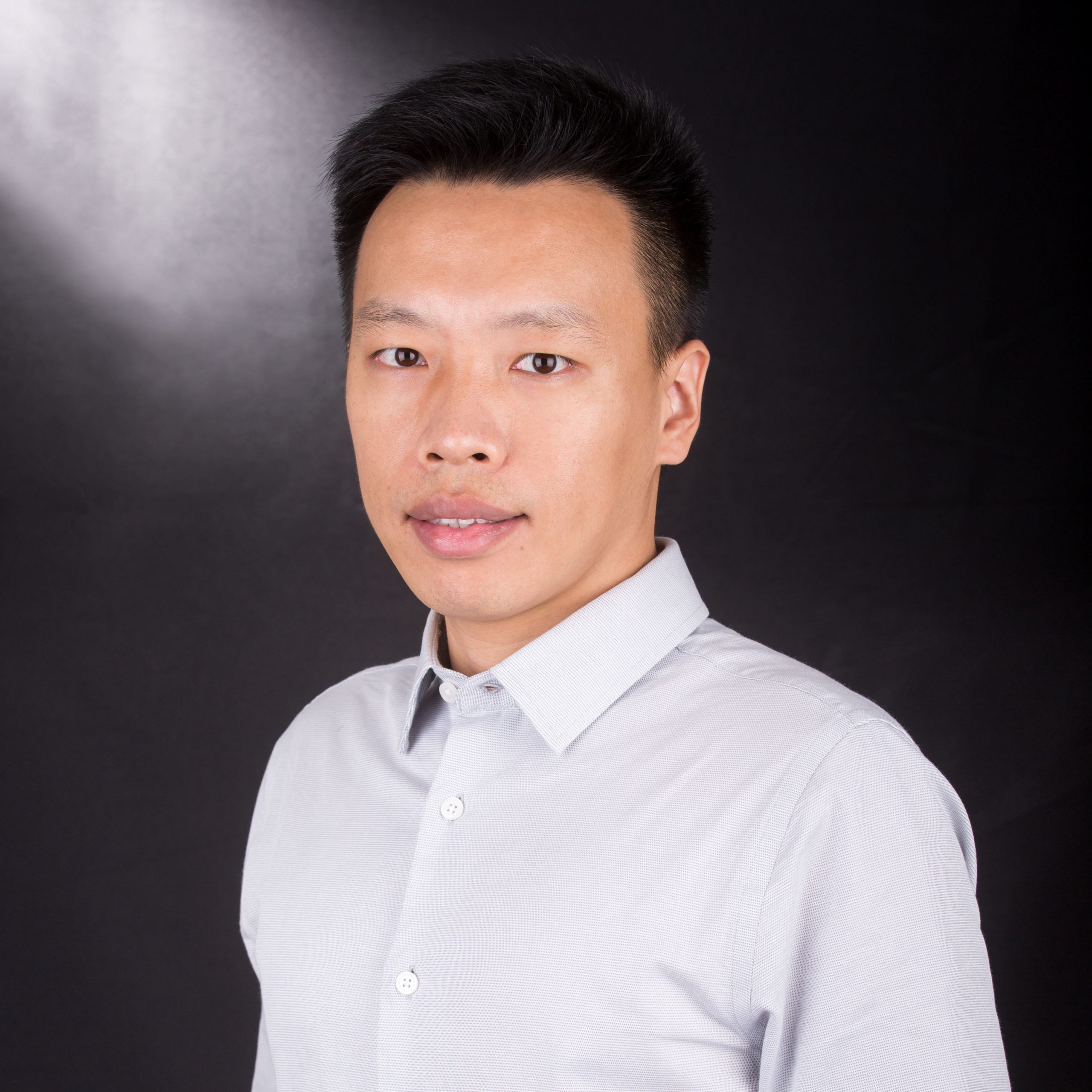Final destination
Before Dr. Li becomes a scholar, she was a practitioner of a financial leasing company. Frustrated by the lack of systematic record management methodologies in the market, Dr. Li decided to develop these tools herself. But eventually, the joy of creating and passing down knowledge has Dr. Li stayed behind.
Dr. Li herself is a very passionate teacher. Her students find her friendly and approachable. They also commented that she is exceptionally good at simplifying complicated phenomena into simple understand principles. Substantiating her views with rich case studies, students genuinely believe that they could learn a lot from her. Satisfied with what she has achieved, Dr. Li views academia as where she belongs.
What to do after graduation?
Many have asked Dr. Li on whether they should further their studies after graduation. Other than time and funding, the important question is to understand what kind of career you are pursuing. If you are into knowledge creation, Dr. Li encourages students to enter academia through MPhil and PhD. If you are keen on developing a career in the private sector, taking a Master would be conducive. Master programmers are the best venues for industry practitioners to establish their network and the programme itself has a strong focus on real-life applications.
To become an all-rounded person
No matter what paths students are choosing, Dr. Li believes that keeping an open mind greatly empowers one to excel in both academia and the private market. Most of the time, the reason we cannot solve a problem is likely because our view is limited and the knowledge and methodologies we possess are insufficient. It is therefore important for one to broaden their horizons and develop an international worldview.
As a scholar of economics, Dr. Li strongly recommends economics major to pay attention to other business and non-business related disciplines. Economics is omnipresent. Its theories and econometrics models are used by political scientists in policymaking, used by marketing teams to predict growths, and used by computer engineers in developing financial products. Therefore, one cannot fully understand the reach and implications of economics simply through textbooks. Business students are, therefore, highly encouraged to develop a second major in a non-business related stream.
For students interested in developing a career in the private sector, Dr. Li believes that computer science suits them best. In the age of data, having expertise in coding and programming would be very desirable. But for students who hope to realize their knowledge and create social impacts, Dr. Li believes that studying international relations and political science could empower them to achieve their aspirations.
Beyond career choices, Dr. Li believes that majoring in communications could greatly benefit one in their studies and work. After all, we need to present ourselves clearly in order to persuade effectively. Either persuading investors through project proposals or persuading our teachers that we really have to pay attention in class via term assignments. As business students lack the opportunity to write, other than majoring in communications, the best way to hone one’s writing skills is to read novels and journey articles. However, given that business students are occupied by case competitions, intern interviews, and other after-school activities, Dr. Li believes that consultation reports could be a short-cut. Consultation reports are masterpieces. They are very short but they are capable of conveying important messages with the easiest of words.
However, even though there is a short cut, developing good writing skills is still a chronic process. Dr. Li recommends students that after they have finished writing, they should read it to themselves and seek comments from their friends. If time allows, students should leave their writing for 3-4 days before reading it again. Then, you could review it with a fresh mind and may even discover hidden problems.
But at the end of the day, the purpose of taking a second major is to diversify our skills and broaden our horizons. Therefore, if students are interested in non-business related disciplines such as music, literature, and sports, Dr. Li would also offer them her full support. (If you are interested in the relationship between arts and economics, please check out Professor Li Jin’s article: “Art, Life, Economics”)
The ABCs of a Researcher
During the interview, Dr. Li had also shared with us her life as a researcher. She believes the presentation for her PhD dissertation was the most remarkable experience in her scholar career. She was very nervous at the beginning but after being encouraged by her PhD adviser, she had gained the confidence to present it eloquently. Dr. Li believes that the gist to excel in a public presentation is to have faith in yourself. Once you have successfully convinced yourself that you are THE expert in what you are presenting, you could express yourself freely on stage.
It is easier said than done and practice makes perfect. As the first step is the most difficult, Dr. Li encourages students to practice with her prior to their presentations. Although she would kindly offer them advice to improve, she hopes that students could gradually expand the size of their practice audience. From your parents to your friends, from 20 audiences to 200 audiences, you will eventually get used to public presentation.
The elementary school teacher of Dr. Li had told her that “Those don’t know how to play, don’t know how to study.” Now she thinks about it, this sentence is particularly true after she has embarked on her academic journey. As it is very often for one to face setbacks and failures during research, one must learn how to relax. Dr. Li herself will take one day off every week in order to refresh her mind. When she returned to her work desk tomorrow, she would be able to view the problem from a whole new perspective. In addition to talking with friends and family, discussing with other Ph.D. students and scholars could be conducive to gain new professional insights.
Research in the pipeline
Currently, Dr. Li is working on two research papers. The first one is about consumer preferences for variety. When speaking of purchasing preferences, we often think that we will only buy one specific type of product. For example, we will either buy a bottle of coke or a bottle of orange. But in reality, consumers will prefer variety. Dr. Li observes that consumers will purchase different products of the same group (E.g. plain yogurt and strawberry yogurt) and consume them in rotation. Therefore, Dr. Li attempts to translate this behavior into an economic model in order to facilitate future analysis of consumer demand estimation.
The second research is about product quality in the Chinese steel industry. Dr. Li observes that if you try to increase product quality, the costs will grow because of resources spent on R&D and QC. However, in the Steel industry, Dr. Li discovers that the construction for normal buildings does require the perfect steel. The market for average steel exists and it is surprisingly large! Therefore, Dr. Li aims to investigate how steel factory owners will make their production decision. Whether they will produce the hard-to-produce perfect steel and seek value from the high-profit margin, or will they go for the easy-to-produce average steel to guarantee income.
Knowledge sharing: Case studies of proper indirect advertisements & The economy in the era of solitude
Since Dr. Li is an expert in consumer preferences and she has been keeping a keen eye on social issues, we have decided to seek her knowledge on these issues.
Indirect advertisement – a Hong Kong case study
In November 2016, during an anniversary celebration of a TV station, its artists are arranged to consume fried chicken from a famous brand on screen for more than a minute. This incident not only angered netizens, but it also caused the company to be fined HKD 150,000. This is not the first time the TV station was criticized for its improper advertisements. In 2016, in a fantasy costume film, some netizens found that the protagonist in the Ming Dynasty was consuming bucket fried chicken.
Regarding this problem, Dr. Li believes that indirect advertisements should only be made under three considerations: First, is it necessary? Second, will the audience accept it? Third, does it constitute to the commercial success of the show?
The bottom line is that indirect advertisements must not upset the audience. For example, people will not complain if they see a protagonist in a modern show working in 7-11 or drinking Heineken beer. As advertisement is an important source of income for TV broadcasts, Dr. Li hopes that the industry could be more professional.
An era of solitude
We are living in a digital age, where technological advancements have allowed us to communicate beyond the barrier of space and time. However, this has also reduced interpersonal interactions in real life. As we are entering an era of solitude, Dr. Li believes that there will be the following changes in the market.
In terms of human behaviors, Dr. Li believes that the lack of face-to-face communication could save up a lot of time and make communication more efficient. With more time saved, people would have more time to learn, receive, and disseminate new information. Dr. Li is optimistic that as people could work more efficiently as a unit on their own, it will be conducive to the world’s development and innovation.
On the other hand, market demand for a better evaluation system increase. As people are spending more time online, the time they are exposed to internet news will also increase. Therefore, a good evaluation system is necessary to fight off fake news and accredit the truth. Likewise, demand for personal information protection will also increase, as we are leaving more and more footprints on different websites and social media platforms.
While the era of solitude harbors opportunities to mankind, it also brings detrimental effects to our society. For example, the presentation skills of people may be weakened as the era of solitude allows people to isolate themselves and avoid verbal expressions. Speaking is an art that requires practice to perfect. Thinking about the words in your mind is different from saying it out. Being speechless and replying only in single words will cause one to stutter and have difficulties in organizing fluent and reasonable speech patterns in real-time. Unable to convey yourself effectively can also lead to embarrassing encounters, damaging one’s confidence and creating a vicious cycle that forces one to speak even less. This may explain why a lot of university students can only conduct their presentations looking at a fully-written Q card and are being quiet during group discussions. The emergence of a generation that cannot even speak confidently and effectively is detrimental to the competitiveness of our city. Moreover, an era of solitude also implies that interaction among people will also decrease, making it more difficult to cultivate good interpersonal skills. This is one of the reasons why the young generation is often considered to be rude, self-centered, and are unable to get along with each other.
The cocktail of low self-esteem, poor presentation skills, and weak social skills has resulted in anti-social communities such as the Incels (the Involuntarily Celebrated). The Incels is a community of young males in North America. Members are usually unemployed or are barely able to make ends meet. They are characterized by extremely low self-esteem, especially in romantic relationships. Although most are just whining about their misfortune and are acting as violent misogynists on the internet, their worshiping of Elliot Rodger, (A 22-year-old Incel who killed seven and injured 14 before committing suicide in 2014), has risen a red flag. It is an established fact that most of the Incels are victims of depression and anxiety but that does not justify their cynical world view and twisted values.
While groups like the Incels are branded as the minority, as the era of solitude goes on, the demand for related rehabilitation serves may increase to salvage our future generation. Dr. Li believes that it is also likely that enterprises may have to purchase more ice-breaking and team-building services in order to develop social skills among staff.
Way forward
Joining HKU, Dr. Li is ready to dedicate herself to pedagogy. As a passionate teacher, Dr, Li will try her best to offer the most detailed career advice and academic guidance to her students. She concludes her aspiration in HKU by the following sentence:
“Make me more knowledge and make my students enjoy themselves to be knowledgeable”






